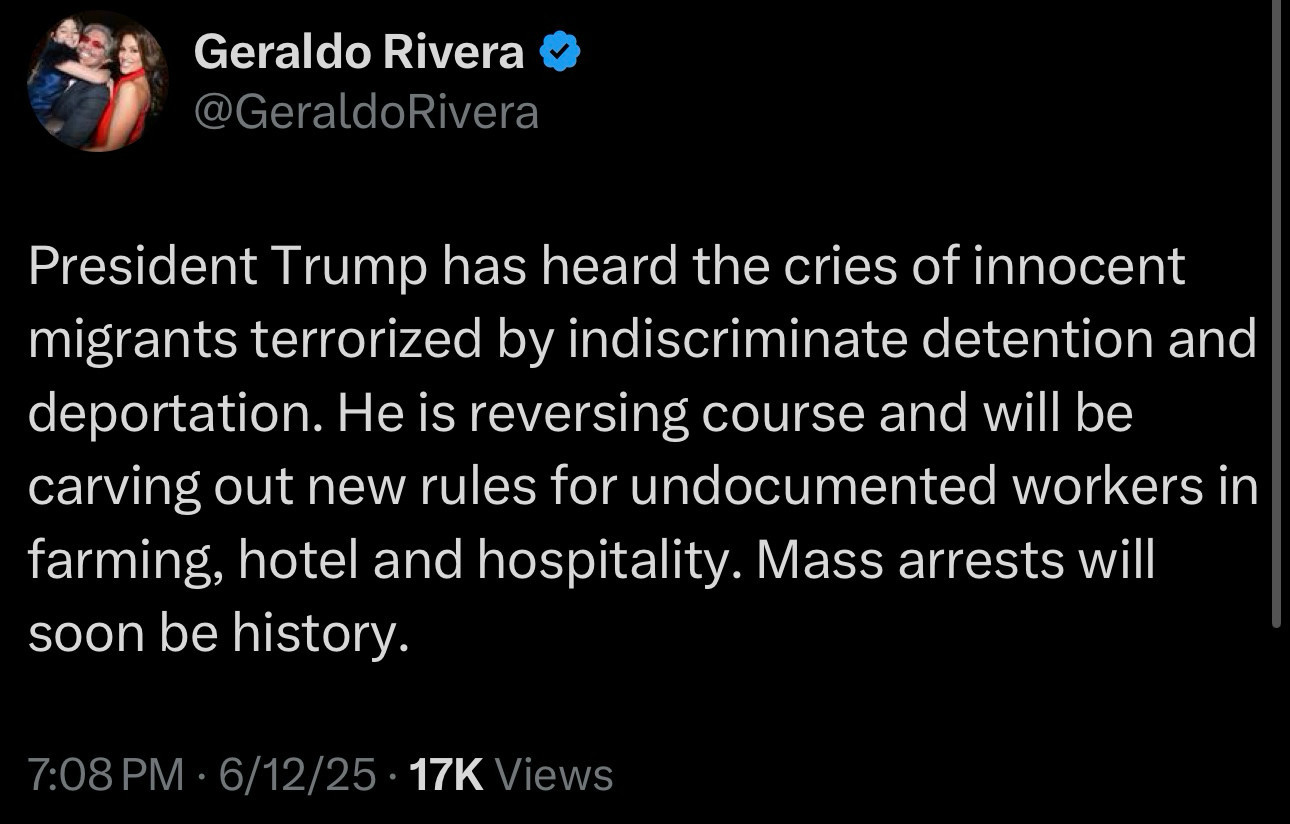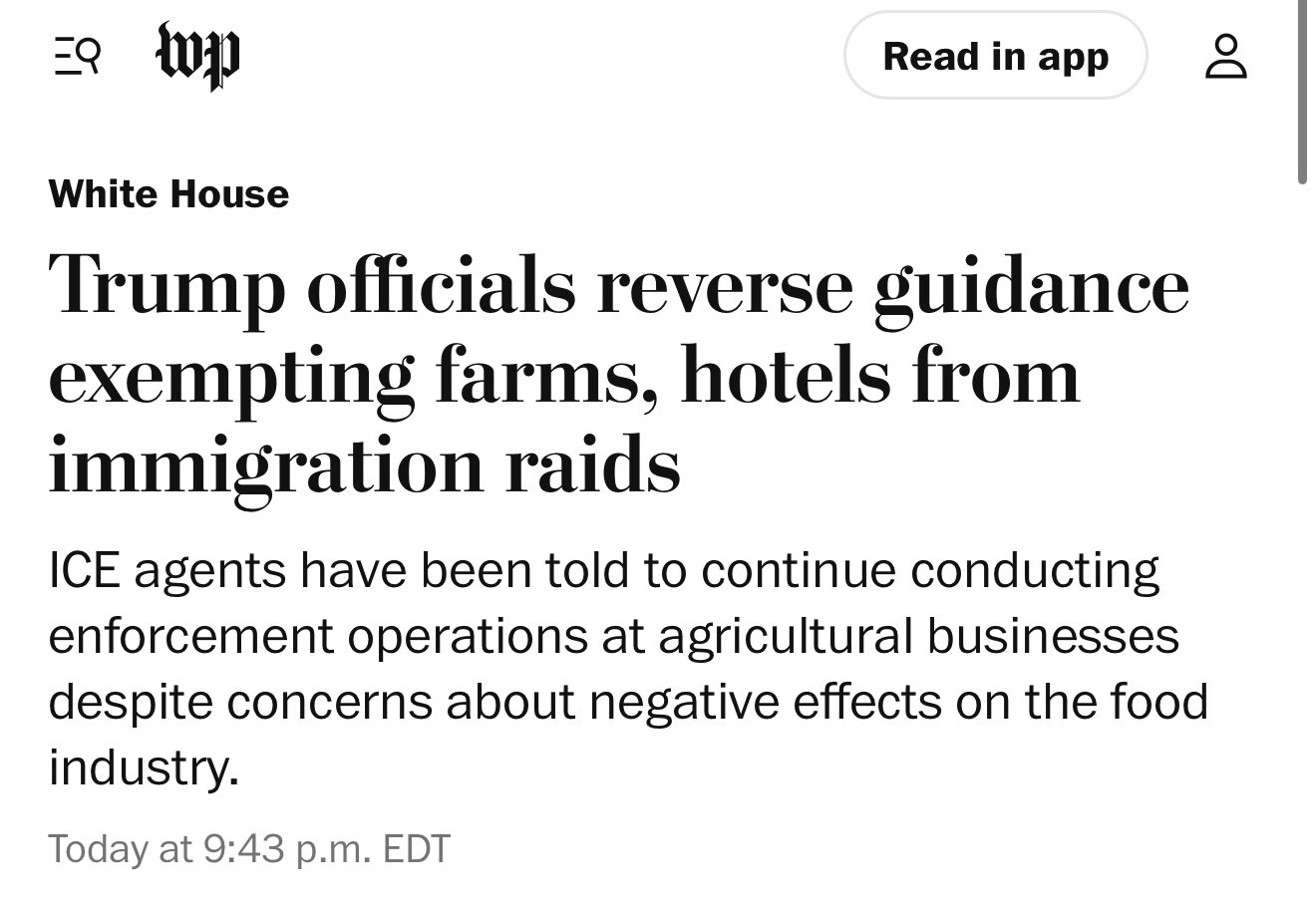You are using an out of date browser. It may not display this or other websites correctly.
You should upgrade or use an alternative browser.
You should upgrade or use an alternative browser.
I didn’t vote for Trump but I’m cautiously optimistic
- Thread starter chop2chip
- Start date
sturg33
I
not regrettable enough to want to rectify it thoughThere are certain groups that receive preferential treatment under the law. I find that regretable.
sturg33
I
Then probably shouldn't go to bat for illegal criminals over tax paying citizensI don't want to be accused of being a socialist.
Tapate50
Well-known member
it’s defended at every turn.
They don’t care
I’ll never forgive Dems for what they did to such amazing work by the finance people who coined the term. It could have simmered in the background very hilariously and the left just couldn’t leave well enough alone and now it sucks.
nsacpi
Expects Yuge Games
that would be so rad
nsacpi
Expects Yuge Games
nsacpi
Expects Yuge Games
Governor Newsom makes a cogent point.
The devil is always in the details: who gets labeled a criminal, who gets labeled an indispensable worker
The devil is always in the details: who gets labeled a criminal, who gets labeled an indispensable worker
zitothebrave
Connoisseur of Minors
Carp
Well-known member
They are called American citizens. I know it's crazy that the rights granted by our constitution only apply to American citizens. That's such an outrageous expectation.There are certain groups that receive preferential treatment under the law. I find that regretable.
nsacpi
Expects Yuge Games
eh...my point was that impartiality under the law is an ideal but in fact people are treated differently for a variety of reasons...the one i had in mind was socioeconomic status...hence my allusion to "socialism" as a remedy
your performative outrage is amusing as always
btw i am pleased to note that the courts seem to be of the view that non-citizens are also protected against persecution based upon expressions of a viewpoint or political stance...God bless our judges....America IS a great country...for this and many other reasons
your performative outrage is amusing as always
btw i am pleased to note that the courts seem to be of the view that non-citizens are also protected against persecution based upon expressions of a viewpoint or political stance...God bless our judges....America IS a great country...for this and many other reasons
Last edited:
nsacpi
Expects Yuge Games
On Wednesday morning, President Trump took a call from Brooke Rollins, his secretary of agriculture, who relayed a growing sense of alarm from the heartland.
Farmers and agriculture groups, she said, were increasingly uneasy about his immigration crackdown. Federal agents had begun to aggressively target work sites in recent weeks, with the goal of sharply bolstering the number of arrests and deportations of undocumented immigrants.
Farmers rely on immigrants to work long hours, Ms. Rollins said. She told the president that farm groups had been warning her that their employees would stop showing up to work out of fear, potentially crippling the agricultural industry.
She wasn’t the first person to try to get this message through to the president, nor was it the first time she had spoken to him about it. But the president was persuaded.
The next morning, he posted a message on his social media platform, Truth Social, that took an uncharacteristically softer tone toward the very immigrants he has spent much of his political career demonizing. Immigrants in the farming and hospitality industries are “very good, long time workers,” he said. “Changes are coming.”
Some influential Trump donors who learned about the post began reaching out to people in the White House, urging Mr. Trump to include the restaurant sector in any directive to spare undocumented workers from enforcement.
Inside the West Wing, top White House officials were caught off guard — and furious at Ms. Rollins. Many of Mr. Trump’s top aides, particularly Stephen Miller, his deputy chief of staff, have urged a hard-line approach, targeting all immigrants without legal status to fulfill the president’s promise of the biggest deportation campaign in American history.
But the decision had been made. Later on Thursday, a senior official with Immigration and Customs Enforcement, Tatum King, sent an email to regional leaders at the agency informing them of new guidance. Agents were to “hold on all work site enforcement investigations/operations on agriculture (including aquaculture and meat packing plants), restaurants and operating hotels.”
makes me cautiously optimistic
Farmers and agriculture groups, she said, were increasingly uneasy about his immigration crackdown. Federal agents had begun to aggressively target work sites in recent weeks, with the goal of sharply bolstering the number of arrests and deportations of undocumented immigrants.
Farmers rely on immigrants to work long hours, Ms. Rollins said. She told the president that farm groups had been warning her that their employees would stop showing up to work out of fear, potentially crippling the agricultural industry.
She wasn’t the first person to try to get this message through to the president, nor was it the first time she had spoken to him about it. But the president was persuaded.
The next morning, he posted a message on his social media platform, Truth Social, that took an uncharacteristically softer tone toward the very immigrants he has spent much of his political career demonizing. Immigrants in the farming and hospitality industries are “very good, long time workers,” he said. “Changes are coming.”
Some influential Trump donors who learned about the post began reaching out to people in the White House, urging Mr. Trump to include the restaurant sector in any directive to spare undocumented workers from enforcement.
Inside the West Wing, top White House officials were caught off guard — and furious at Ms. Rollins. Many of Mr. Trump’s top aides, particularly Stephen Miller, his deputy chief of staff, have urged a hard-line approach, targeting all immigrants without legal status to fulfill the president’s promise of the biggest deportation campaign in American history.
But the decision had been made. Later on Thursday, a senior official with Immigration and Customs Enforcement, Tatum King, sent an email to regional leaders at the agency informing them of new guidance. Agents were to “hold on all work site enforcement investigations/operations on agriculture (including aquaculture and meat packing plants), restaurants and operating hotels.”
makes me cautiously optimistic



